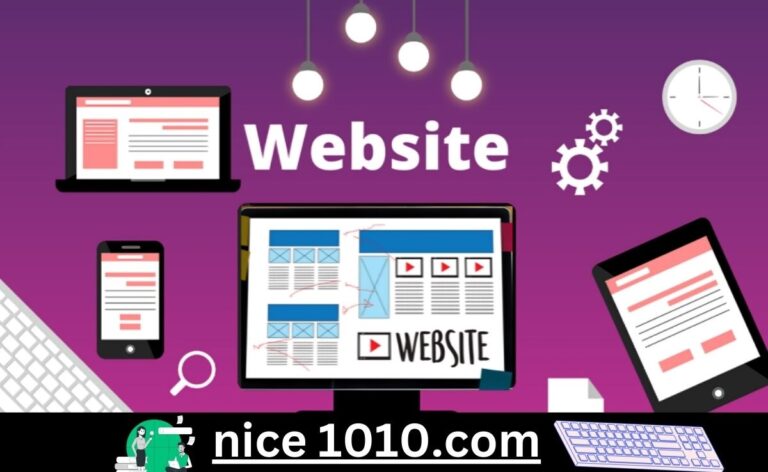
The COVID-19 pandemic brought immense challenges to healthcare systems across the world. In response, digital solutions like crm.covidcare.id played a pivotal role in managing the vast and evolving landscape of healthcare operations. This article will explore how crm.covidcare.id contributed to healthcare management during COVID-19, improving efficiency, patient care, and response strategies.
Table of Contents
The Need for Healthcare Management in a Pandemic
The onset of COVID-19 created a global health crisis, exposing vulnerabilities in healthcare systems. Hospitals were overwhelmed with patients, medical supplies were strained, and governments scrambled to coordinate testing, treatment, and vaccination efforts. Amid this chaos, effective healthcare management became critical to maintain patient care and ensure efficient resource allocation.
Healthcare organizations turned to digital tools like Customer Relationship Management (CRM) platforms to streamline processes, track patient data, and support decision-making. CRM systems typically manage customer interactions, but in the context of healthcare, they became invaluable in organizing patient data, vaccination records, and treatment protocols.
CRM in Healthcare
Before the pandemic, CRMs were widely used in the healthcare sector for managing patient relationships, appointment scheduling, and communications. However, the unique challenges posed by COVID-19 demanded more from these systems. They needed to not only track individual patient records but also manage large-scale public health efforts, such as vaccine distribution and case tracking.
This is where crm.covidcare.id emerged as a crucial tool, adapted specifically for the complexities of the COVID-19 crisis.
What is crm.covidcare.id?
crm.covidcare.id is a digital platform tailored to address the healthcare needs arising from the pandemic. It functions as a centralized system for managing COVID-19-related data, including patient information, testing results, and vaccination records. By integrating various health data points, the platform ensures that medical professionals, government bodies, and healthcare administrators can access real-time data to make informed decisions.
The platform’s key capabilities include:
- Patient Management: Centralized records of patients’ COVID-19 status, including test results, symptoms, and treatment plans.
- Vaccination Tracking: A comprehensive system to manage vaccine distribution, track individual vaccinations, and ensure timely administration of doses.
- Case Monitoring: Real-time tracking of COVID-19 cases, enabling healthcare providers to respond to surges and allocate resources efficiently.
How CRM Systems Became Vital During COVID-19
CRMs, including crm.covidcare.id, provided a holistic approach to healthcare management during the pandemic. Traditional healthcare systems often faced issues with fragmentation, where patient data was stored across multiple platforms, leading to delays in accessing critical information. CRMs resolved this by creating a single point of access for all relevant data.
crm.covidcare.id was particularly effective because it allowed healthcare providers to manage vast amounts of data in real-time. This was essential in a pandemic, where time-sensitive decisions could mean the difference between life and death. For instance, the ability to monitor vaccination campaigns, identify COVID hotspots, and track patient recoveries all through a single platform improved the overall coordination of healthcare services.
The Role of crm.covidcare.id in Vaccine Management
One of the most crucial elements of COVID-19 management was the development and distribution of vaccines. crm.covidcare.id played a pivotal role in this process by streamlining vaccine management.
Efficient Vaccine Distribution
The platform helped ensure that vaccines were distributed equitably and administered on time. It tracked supply chains, monitored vaccine storage conditions, and logged recipient data, ensuring that the right people received the correct doses at the right time.
Additionally, crm.covidcare.id could identify areas with low vaccination rates, allowing health authorities to target their efforts more effectively. This proactive approach was essential in achieving widespread vaccination coverage.
Monitoring Adverse Reactions
Another critical function of crm.covidcare.id was its ability to track adverse reactions to the vaccine. By gathering real-time feedback from patients, healthcare professionals could monitor side effects and react swiftly to any emerging issues. This data was also invaluable for ongoing research into vaccine efficacy and safety.
Data Integration and Analytics
The integration of analytics into crm.covidcare.id allowed for the generation of data-driven insights. For example, healthcare professionals could analyze the effectiveness of lockdown measures, infection trends, and vaccine efficacy. These insights informed policymakers and guided public health strategies.
By collating and analyzing large datasets, crm.covidcare.id enabled governments and healthcare institutions to respond dynamically to changing pandemic conditions.
Improving Patient Outcomes with crm.covidcare.id
Beyond vaccine management, crm.covidcare.id was instrumental in improving patient outcomes during the pandemic. Its ability to track and manage patient data in real-time allowed for better coordination between healthcare providers, leading to improved patient care.
Early Detection and Response
With real-time case monitoring, the platform enabled healthcare professionals to detect surges in COVID-19 cases quickly. By identifying emerging hotspots, authorities could allocate resources and implement lockdown measures to prevent further spread.
Furthermore, patient data stored within crm.covidcare.id helped clinicians to make more informed decisions. For instance, they could quickly access a patient’s medical history and treatment records, leading to more personalized and effective care.
Remote Patient Monitoring
During the pandemic, remote patient monitoring became a necessity, particularly for individuals who tested positive for COVID-19 but were asymptomatic or had mild symptoms. crm.covidcare.id made it easier for healthcare providers to track the condition of patients remotely and provide timely interventions if symptoms worsened.
This remote management reduced the burden on hospitals and allowed patients to recover from home while still receiving adequate medical oversight.
Security and Data Privacy in crm.covidcare.id
Managing sensitive healthcare data comes with its own set of challenges, particularly around security and privacy. With the massive influx of patient data during the pandemic, crm.covidcare.id implemented robust security measures to ensure that data privacy was upheld.
Compliance with Data Regulations
crm.covidcare.id adhered to stringent data protection laws, ensuring compliance with regulations like GDPR and local data protection standards. This was essential in maintaining public trust in the platform and the broader healthcare system.
Data Encryption and Access Control
The platform employed advanced encryption technologies to protect patient data. Additionally, access to the platform was restricted to authorized personnel only, ensuring that sensitive medical information was handled responsibly.
The Future of Healthcare Management Post-COVID
As the world gradually recovers from the pandemic, platforms like crm.covidcare.id have demonstrated the importance of digital healthcare management systems. The pandemic has accelerated the adoption of digital tools, and it’s likely that these platforms will continue to evolve and play a significant role in post-pandemic healthcare.
Long-Term Benefits of CRM Systems in Healthcare
The lessons learned during the pandemic will have lasting impacts on healthcare management. CRM systems have proven their ability to streamline operations, improve patient outcomes, and facilitate data-driven decision-making.
crm.covidcare.id and similar platforms could become permanent fixtures in healthcare, not only for managing future pandemics but also for improving general healthcare delivery.
The Role of AI and Machine Learning
Looking ahead, the integration of AI and machine learning into CRM platforms will likely revolutionize healthcare management further. These technologies can enable more precise predictions about patient outcomes, optimize resource allocation, and even assist in diagnosis.
Conclusion
The pandemic underscored the necessity of robust healthcare management systems, and crm.covidcare.id emerged as a vital tool in the fight against COVID-19. By streamlining patient data, improving vaccine distribution, and ensuring real-time decision-making, platforms like crm.covidcare.id have proven their worth.
As the healthcare industry moves forward, the integration of CRM technologies will be crucial in improving patient care, managing public health initiatives, and ensuring that healthcare systems are better prepared for future challenges.



